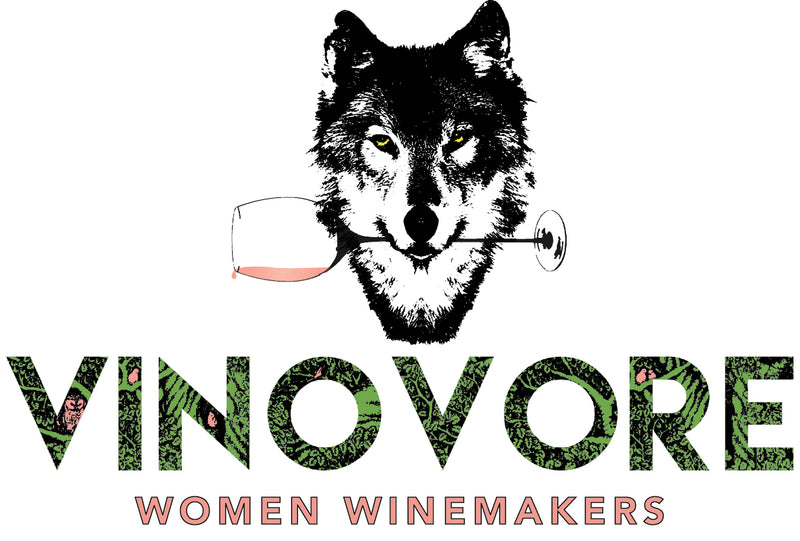This couple is making ‘Pride wine’ in the Santa Ynez Valley to uplift the LGBTQ+ community

LOMPOC — One of the winemakers is a native of Catalunya, an autonomous region of Spain, whose family for generations made wine to accompany their meals. The other is a Chumash tribal member who honed her skills at the first winery owned and operated by California Native Americans.
Together, they run a Lompoc winery whose name invokes a Catalunyan word for “paths” the two have traveled to get here. This year, Mireia Taribó and Tara Gomez celebrate four years of Camins 2 Dreams, where they make uncommon wines their way in the Santa Rita Hills of Santa Barbara County. The venture is both rewarding and challenging for the BIPOC queer women, who also happen to be married to each other.
But this year, Gomez and Taribó faced a struggle all too familiar to the couple — the unsettling wave of intolerant, hateful attacks on queer people happening throughout the country, including in Southern California and the Santa Ynez Valley they call home.
Their response to the current anti-LGBTQ+ climate?
Make a Pride wine and donate 60% of proceeds to local LGBTQ+ organizations such as Santa Ynez Valley Pride and the Rainbow House Inc.
“We wanted to do a Pride wine last year because it was the first one held in Santa Ynez, but we found out about it too late,” says Gomez. “Then with all the [anti-Pride sentiment] that’s going on in the valley, it’s disappointing but not really surprising. We knew this year we could do a wine for Pride and donate much more of the proceeds to these organizations doing work for the LGBTQ+ community here.”
Camins 2 Dreams’ limited-edition Pride red wine is a blend of all the grapes they used to make wine from last year’s vintage, representing the diversity and togetherness of “all the colors” for Pride. They have been selling it all month, culminating in a “Cheers Queers” Pride party they’ll host on Friday at their new tasting room in Lompoc’s buzzing Wine Ghetto.

Standing out in the Santa Rita Hills
During a tour of the new tasting room, Gomez shows me a large wooden board with several rows of round holes.
“This is the riddling rack for the pét-nat,” she explains, as she pantomimes placing a bottle in one of the holes and turning it. “They stay here for about 28 days until we disgorge them.”
As if on cue, Taribó pulls a blue bottle from the fridge and holds it up to the light to show me the sediment. “This is what we get rid of during the disgorgement,” she says.
Gomez pulls out her phone and shows me a video demonstrating the process. She takes a bottle of pét-nat that has been stored upside down and holds it up to the camera so viewers can see the sediment collected in the bottle’s neck after 28 days of manual rotation on the rack.

She then walks the bottle over to a metal box resembling a microwave oven missing its door. With one hand, Gomez holds the bottom of the bottle tight against her belly and angles the neck downward while she holds a long prying tool in her other hand. Timing and position are everything. She brings the bottle parallel to the floor, points the cap toward the back of the box, and pop! The cap flies away while foam and sediment bubble out like lava. Gomez places the bottle upright and steps back, her clothes covered in a fresh coat of yeast and grape matter.
“We lose some of the wine in this process,” explains Taribó, “so we have to fill it with the next bottle.” She fills and wipes each bottle by hand before using a manually operated machine to press on the caps. She and Gomez repeat this cycle, bottle by bottle, for the roughly 408 bottles of pétillant-naturel, a natural sparkling wine they make each year with the Austrian grape variety Grüner Veltliner.
Their pét-nat production encapsulates everything Camins 2 Dreams represents as a winery committed to making terroir-focused wines from underutilized grapes using sustainable, minimal-intervention methods.
Gomez, a Chumash tribal member, and Taribó, a native of Spain’s Catalunya region, blend their generational old- and new-world knowledge of winemaking, rebelliousness and respect for the land to make what they describe as “underrepresented wines by underrepresented people.”






